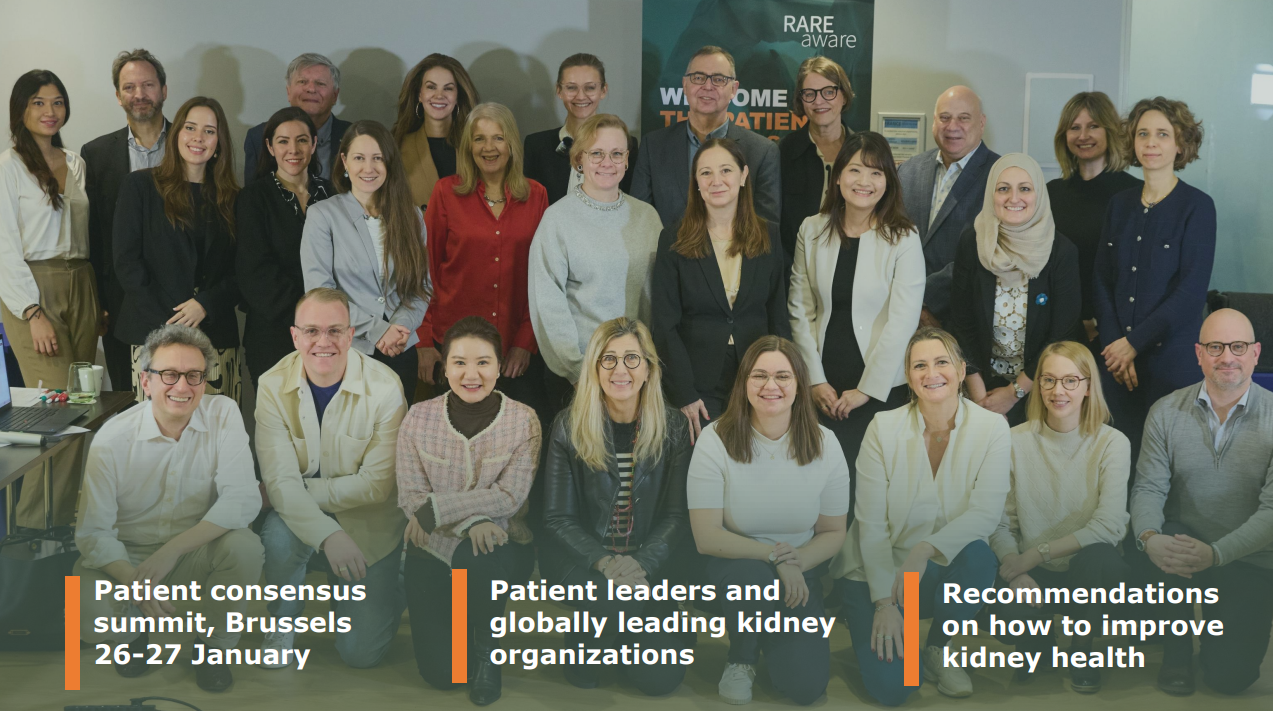One clear message emerged from two meetings of European kidney health stakeholders that recently convened in Brussels. In Europe, the time has come to prioritize screening for kidney disease and access to earlier diagnosis and treatment.
At the Rare Renal Patient Consensus Summit, human-centered stories were front and center in policy discussions. The event reflected on the reality of the human stories behind chronic kidney disease, spotlighting the further hardships that rare kidney disease patients and their carers face on the way to getting access to the care they need.
The event resulted in specific policy recommendations, including reprioritization of early detection and intervention. Participants agreed dialysis cannot remain the go-to solution for patients. In addition, timely access to care and clinical trials needs to be accessible and affordable for patients.
The next day, the European Kidney Forum was held at the European Parliament. There, the focus was on what EU member states can do to prioritize screening and the value of early intervention in kidney disease to manage the ever-increasing burden of the related cardio-kidney-metabolic conditions. The MEP Group for Kidney Health was relaunched, and supporting MEPs (Members of the European Parliament) made a commitment to advocate for more funding for early detection of CKD through prevention guidelines and Centers of Excellence.
Prioritizing chronic kidney disease, Daniel Gallego, President of the European Kidney Patient Federation said, should not be just about survival, but about the quality of life of millions of patients around the world. To achieve that goal, it is clear treatment plans must center around early screenings and diagnoses.
To learn more about the benefits of early intervention in kidney disease read this policy brief recently released by the Global Patient Alliance for Kidney Health.

